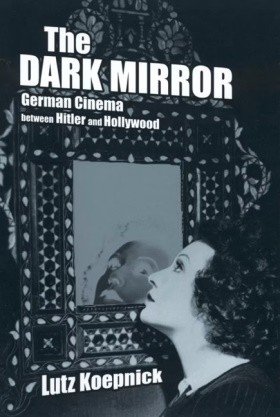Mild und leise
wie er lächelt,
wie das Auge
hold er öffnet—
seht ihr’s, Freunde?
Säht ihr’s nicht?
Immer lichter
wie er leuchtet,
Stern-umstrahlet
hoch sich hebt?20
[Mildly, gently,
See him smiling,
See his eyes
Softly open.
Ah behold him!
See you not?
08-C2205 8/17/02 3:39 PM Page 246
246
/
Berlin in Hollywood, 1939 –1955
Ever brighter,
Brightly shining,
Borne in starlight
High above?]
In the face of Tristan’s death Wagner’s Isolde transfigures Tristan’s corpse and hails what she perceives as the lover’s spiritual resurrection. For Bernhardt’s Isolde, by contrast, Tristan’s levitation triggers total collapse. Halfway through her lines Lawrence breaks down onstage, omits the crucial passage of “leuchtet, / Stern-umstrahlet / hoch,” and is struck with silence after “sich hebt.” Movement and transformation in Wagner thus become stasis and muteness in Bernhardt. In a gesture of chiastic inversion the film turns Wagner’s text on its head.
The second staging of Tristan und Isolde confronts the viewer with a similar instance of textual recoding. The passage chosen to feature Lawrence’s triumphant New York comeback is taken from the same section that was used earlier to dramatize the diva’s sudden illness. Now, however, we hear Lawrence sing not the first but the very last lines of Isolde’s “Liebestod” aria: Soll ich schlürfen,
untertauchen?
Süß in Düften
mich verhauchen?
In dem wogenden Schwall,
in dem tönenden Schall,
in des Welt-Atems
wehendem All,
ertrinken,
versinken,
unbewußt,
höchste Lust!21
[Shall I taste them,
Dive beneath them?
Drown in tide

























